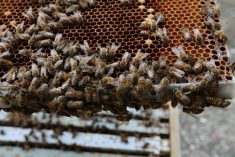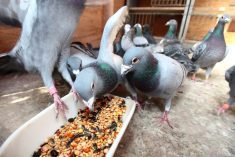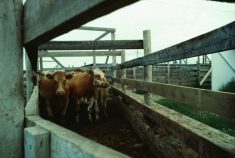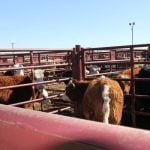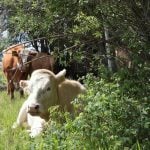A second poultry farm in southwestern Ontario’s Oxford County is now under federal quarantine with what tests show to be avian flu.
The Canadian Food Inspection Agency said Saturday it had placed the farm — a broiler breeder chicken operation west of Ayr, Ont., south of Kitchener — under quarantine after preliminary tests Friday at the University of Guelph’s Animal Health Laboratory came back positive for an H5 strain of the avian flu virus.
The tests were done after the 27,000-bird broiler farm reported “sudden deaths of birds over several days,” the agency said.
Read Also
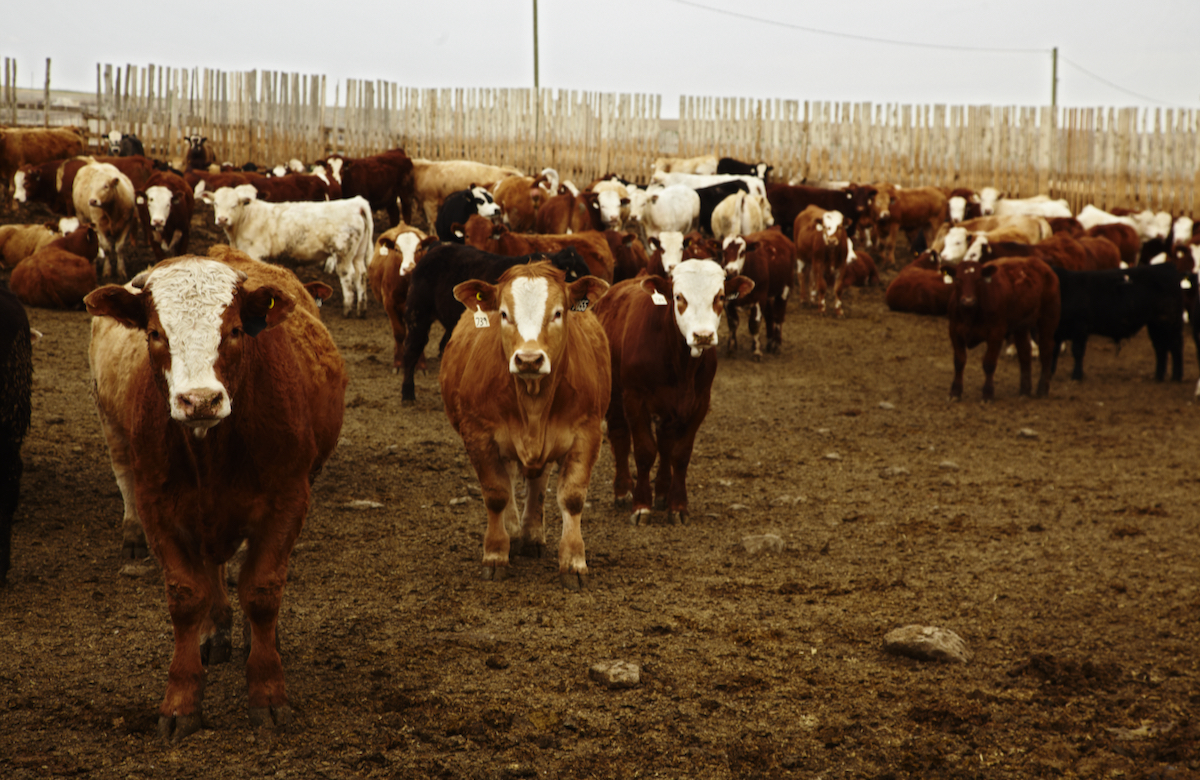
U.S. livestock: Cattle at fresh highs, hogs weaken
Cattle futures on the Chicago Mercantile Exchange climbed to fresh highs on Tuesday, as tight supplies and the ongoing closure…
Samples from the affected farm have been shipped to CFIA’s National Centre for Foreign Animal Disease in Winnipeg to confirm the virus’ pathogenicity (“high-path” or “low-path”) and subtype, the agency said.
All birds on the infected farm will be “humanely destroyed and disposed of” and CFIA will map out a surrounding surveillance zone for further testing and movement control measures, the agency said.
Once all birds are removed, CFIA will also oversee cleaning and disinfection of the farm’s barns, vehicles, equipment and tools to “eliminate any infectious material that may remain.”
The broiler farm is outside the current 10-km control zone around the Oxford County turkey farm that was confirmed April 7 with high-path H5N2 avian flu.
The Feather Board Command Centre, the emergency response office for Ontario’s poultry and egg boards, on Saturday put out a “heightened biosecurity advisory” for all commercial- and backyard-scale poultry farms within a 10-km radius of the chicken farm.
At the border
The strain of H5N2 at the turkey farm, west of Woodstock, Ont., was found to be genetically similar to the strain that infected birds at a dozen farms in British Columbia’s Fraser Valley in December, and at poultry farms in 11 U.S. states since then.
The most recent U.S. cases of H5N2 were confirmed Thursday at a 126,700-bird turkey farm in northwestern Wisconsin’s Barron County, and at a 26,000-bird turkey farm in northwestern Minnesota’s Roseau County.
Minnesota’s commercial turkey farms have been particularly hard hit by H5N2, but Thursday’s case marks the northernmost finding in the state so far. Roseau County shares a border with southeastern Manitoba, running from east of Manitoba Highway 59 to Lake of the Woods.
CFIA on Friday said the findings of avian flu in British Columbia and Ontario and in states along the Mississippi and Pacific Flyways in the U.S. are “a clear indication that (avian flu) viruses are still active within the wild bird population.”
Anyone who has contact with birds though commercial-, backyard- or hobby-scale poultry farms, and/or provides services to poultry producers, is encouraged to practice “enhanced biosecurity procedures,” CFIA said.
Birds with outdoor access should not share areas with wild ducks, geese, or shorebirds, Ontario’s FBCC said Saturday. Any free-range areas should not have “attractions” for wild waterfowl, such as a pond or open feeders, which may become contaminated with wild waterfowl droppings.
“Be prepared to cover your entire yard with netting or to enclose your birds under roofed cover if necessary,” the FBCC said.
The centre also suggests poultry farmers monitor the mortality rates in their flocks and track feed and water consumption.
Producers should watch for any signs of disease, the centre said, such as depression, decreased feed consumption, a drop in egg production, swollen wattles, sneezing, gasping, a discharge from the nose or eyes, diarrhea or sudden death. — AGCanada.com Network



